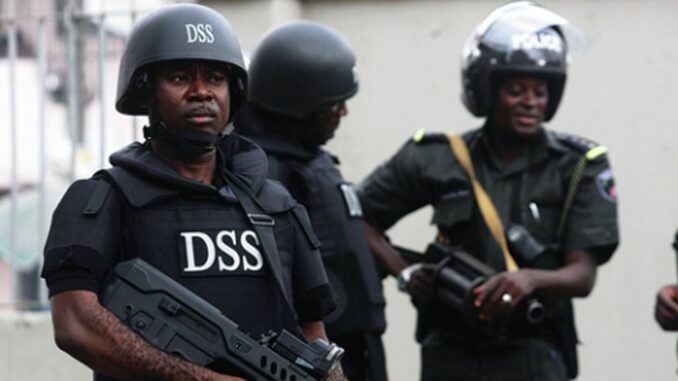
Amid political and economic unease that Nigerians are going through, the Department of State Security (DSS) has, in its words, ‘uncovered plans by some elements in parts of the country to stage violent protests in order to discredit the Federal Government and security agencies over sundry matters.’ The agency continues: ‘Intelligence reports have indicated that the plotters include certain politicians, who are desperately mobilising unsuspecting student leaders, ethnic –based associations, youths and disgruntled groups for the planned action.’
It is assuring, however, that ‘the Service has identified the ring leaders of the plot’, and it is also ‘monitoring …them’ to prevent the actualisation of the alleged intentions. This proactive step is commendable and duly in line with the defined functions of the DSS in its enabling law. The agency is responsible for the ‘prevention and detection of any crime against the internal security of Nigeria; prevention, detection, and investigation of threats of espionage, subversion, sabotage, terrorism, separatist agitation, inter-group conflicts, economic crimes of national security dimension, and threats to law and order.’
The latest alert is just one of the periodic warnings issued by the DSS but they have implications for a psychological sense of insecurity in the mind of the citizens in the land on the one hand, and outside observers of Nigeria on the other hand. In times like these that Nigerians are, for a wide range of reasons, under pressure and somehow on edge, there must be a way the agency can do its preventive, detective, and investigative work more discreetly.
Just recently, the Department of State Security reportedly expressed concern on what is said to be a secret memo about what it described as an ‘impending threat to seamless train transportation along the Abuja-Kaduna Train Service.’ The national security organisation, therefore, advised train passengers to be vigilant.
It will be recalled that the Abuja-Kaduna train service was attacked with bombs and shotguns by terrorists in March 2022. More than 60 passengers were kidnapped, and the service was disrupted for over a year. The human, material and financial damages are incalculable. The DSS cannot afford to allow a similar incident to occur. Its remit, as provided in its enabling law, includes prevention, detection, and investigation of ‘any crime against the internal security of Nigeria.’
This is not the first time the DSS has raised alarm about terrorists’ plans to jeopardise national security, and threats of other categories of criminals that roam free and wide in this polity. At one time, it alleged a plot by ‘misguided political actors’ and ‘entrenched interests’ to install an interim government. ‘The planners, in their many meetings, have weighed various options which include among others, to sponsor endless violent mass protests in major cities to warrant a declaration of [a] state of emergency.
Another is to obtain frivolous court injunctions to forestall the inauguration of new executive administrations and legislative houses at the federal and state levels.’ These are accusations that, coming officially and publicly from the DSS, cannot but be taken seriously. Nigerians reasonably expected the suspected persons involved in such a grave plot to truncate the constitutional process and destabilise the polity should, without much ado, be picked up for interrogation. If this happened, it is certainly not to public knowledge.
Shortly after the last Presidential election, it warned politicians to desist from ‘hate speech’ and false narratives’ that could disrupt public peace and order. ‘The DSS will not tolerate a situation where persons and groups take laws into their hands and champion anarchy,’ said organisation’s spokesperson, Peter Afunanya.
Again in March, it alerted the public of plans to violently disrupt peace in the country …and warned those desperate to cause a breakdown of law and order to desist from that.’ Indeed, the security organisation took it upon itself, beyond its remit perhaps, to assume an advisory role that ‘political players [should] abide by the rules of engagement as well as approach the courts for redress if and where there are suspicious infractions on extant electoral laws.’ Again in June, Afunanya alleged that groups were planning to hold demonstrations and ‘campaign of calumny against the organisation and the Federal Government over the suspension and…investigation of Mr Godwin Emefiele. He warned ‘those behind this plot to desist forthwith.’
To be continued tomorrow.
END

Be the first to comment